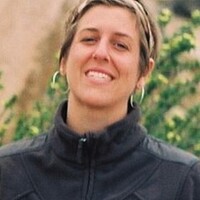Chemist who falsified drug tests in criminal cases goes to jail herself
Loading...
A former state chemist for Massachusetts pleaded guilty Friday to breezing fraudulently through tens of thousands of tests used to prosecute drug-related crimes and then covering up her shortcuts. Annie Dookhan will serve three to five years in prison, and the Massachusetts criminal justice system must now reevaluate thousands of prosecutions that relied on her tests.
After initially denying the charges, Ms. Dookhan, who was born in Trinidad, raised in Boston, and is now a single mother in her 30s, changed her plea Friday. She pleaded guilty to 27 charges of obstruction of justice, perjury, and tampering with evidence.
Dookhan's actions may have distorted the results of the criminal trials of more than 40,000 individuals, and close to 350 people have already been released from prison as a result, Boston public radio station WBUR reports. The Boston-area Department of Public Health laboratory where she had worked for 10 years was closed in August 2012 after the scandal surfaced, and the Associated Press reports that 1,100 criminal cases have been dismissed or not prosecuted as a result.
Judge Carol S. Ball, who delivered Dookhan's sentence in Suffolk County Superior Court in Boston, said in her ruling that “the consequences of her behavior, which she ought to have foreseen, have been nothing short of catastrophic." She continued, "Innocent persons were incarcerated, guilty persons have been released to further endanger the public, millions and millions of public dollars are being expended to deal with the chaos Ms. Dookhan created, and the integrity of the criminal justice system has been shaken to the core."
As of Friday, the state had spent a total of $8.5 million responding to the drug lab crisis, AP reports, and another $8.6 million was authorized to be spent in the current fiscal year, according to Alex Zaroulis, spokeswoman for the state Executive Office for Administration and Finance.
Dookhan was removed from her laboratory duties after she was caught forging a colleague's initials in June 2011, according to The New York Times. But she continued to serve as an expert court witness until she was put on administrative leave in February 2012. In August 2012, she admitted to having mishandled samples, and a subsequent investigation, CNN said, alleged that she had routinely tampered with criminal evidence by altering vials of substances awaiting evaluation for drug content. She altered them, allegedly, to cover up the practice of "dry labbing" samples, which means testing only a fraction of a group of samples before marking them all positive for illegal drugs.
WBUR created charts that show the breakdown of Dookhan's lab results, along with the seemingly remarkable speed with which she processed drug tests. Her colleagues' work slowed down significantly after the US Supreme Court ruled in 2009 that the Sixth Amendment right to confront one's accusers required that chemists make themselves available to testify in court about the results of criminal drug tests. But Dookhan actually started processing drug samples more quickly after that point.
During her August 2012 confession, a police report quoted by The New York Times noted, “She became sad and a slight tear came to her eye, and she stated, ‘I screwed up big time. I messed up. I messed up bad. It’s my fault. I don’t want the lab to get in trouble.’”
But Dookhan's motives remain unclear.
Evidence emerged that she became a go-to chemist for prosecutors who needed their evidence analyzed quickly. Anne Goldbach, of the Massachusetts public defenders agency, told WBUR, “You can tell that Annie Dookhan felt a sense of allegiance to the prosecution. That is absolutely unconscionable.”
Dookhan's attorney, Nicolas Gordon, said, "Her motivation is to be the hardest-working and most prolific and most productive chemist that she could possibly be, and that's how this whole mess begins," WBUR reports.
The Boston Globe suggested that a humble background left Dookhan with a big need to prove herself. "A petite 4 feet 11 inches and a native of Trinidad, Dookhan appeared determined even as a young immigrant girl to outrun expectations and the perceived anonymity of her circumstances," the Globe wrote in February. "Notably intelligent, 'Little Annie' Dookhan was going to make sure that she would never be overlooked."
Dookhan's choice to plead guilty means that the case will not go to trial, so her motive may remain hard to pinpoint.
The Massachusetts state prosecutor had asked for a five- to seven-year sentence, citing the "egregious nature" of Dookhan's actions, AP reports. Her defense lawyer requested a one-year sentence for his client, who has no previous criminal record and has been the primary caretaker of her disabled son.
According to The New York Times, at least 50 of the defendants who have been released from jail because of the scandal, now known as "Dookhan defendants," have been rearrested. Two were murdered upon their release, and one man, Donta Hood, who had been serving time for cocaine possession, is back behind bars after allegedly shooting a man during a drug dispute.
Jamell Spurill, who had been jailed on drug charges, was recently released but soon rearrested, charged with possessing a stolen gun, the Times reports. According to Dookhan's prosecutors, he told police, “I just got out thanks to Annie Dookhan. I love that lady.”







